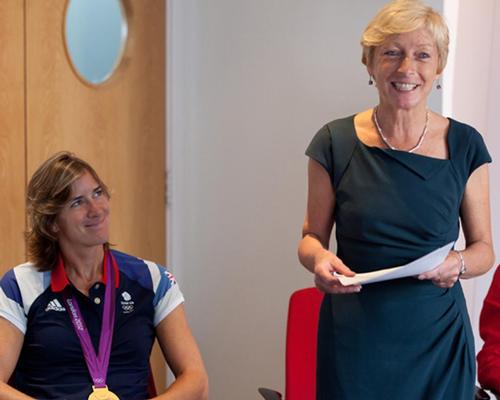28 Jan 2016
Exclusive: UK Sport chief cautious about sports strategy knowledge share requirement
BY Matthew Campelli

UK Sport must guard against overstretching its resources after being told by the government that it will be expected to share its expertise with non-Olympic sports, according to chief executive Liz Nicholl.
The Sporting Future document launched by the Department of Culture, Media and Sport (DCMS) last December tasked the quango with making available its knowledge of “science and medicine, technology and competition support” with non-Olympic and Paralympic sports.
Nicholl told Sports Management that when the organisation “looks at extending the benefits of its expertise further” it would have to “balance that really carefully with the resources we have available”.
“We can’t be distracted from the mission [Rio 2016] so if we have the right resources to actually provide support, that needs to be carefully built into our business plan for the next cycle,” she added.
UK Sport received a welcome boost during last November’s government spending review, when the body found out that it would receive a 29 per cent funding boost – from £135m (US$192.7m, €176.8m) to £148m (US$211.3m, €193.9m) – in the run-up to the 2020 Tokyo Olympics.
However, Nicholl said the increase equated to the organisation “having the same amount of money to invest” in the Tokyo cycle as it ploughed into Rio preparations after drawing down on its National Lottery reserves for this summer’s Games.
“What the government has done is actually give us a 29 per cent increase in exchequer funding, but alongside the Lottery funding we anticipate it will give us the same amount to invest,” she said.
The sports strategy also challenged UK Sport, alongside Sport England, to tackle the lack of diversity in senior positions across the sports sector and within elite coaching. Nicholl said that while the only current concrete target was reaching a 25 per cent quota of women on boards by 2017, her organisation would “embrace a broader diversity perspective” and was “committed” to ensuring change.
“It is our strong view that better balanced boards make better decisions so it starts with recruitment and how the recruitment process is managed to ensure the opportunity is broad enough to reach a more diverse pool of talent,” she said.
“I think the processes we need to put in place are quite simple, but it will take time because sports board recruitment doesn’t come up very often – you have to wait for terms of office to come to an end.”
Close Window